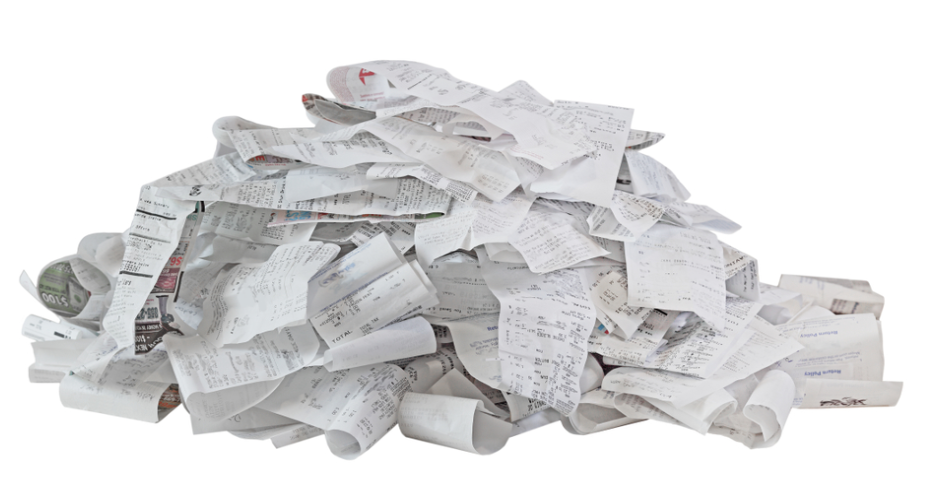CommentsSKIP THE SLIP-Paper receipts are a habitual end to retail transactions. But their usefulness is questionable — they can be tossed out within minutes of being printed or go on to line the bottoms of our bags and wallets.
In an increasingly digital world, it may seem that paper receipts are in decline, but new data from Grand View Research shows the opposite to be true. Every year, paper receipt use is increasing worldwide — including in the U.S., where 256,300 metric tons of paper receipts were consumed in 2018.
These small pieces of paper can have a huge impact.
Millions of trees and billions of gallons of water are consumed to create them, generating tons of waste and greenhouse gas emissions. Most thermal paper receipts are also coated with Bisphenol A (BPA) or S (BPS), endocrine-disrupting substances that we absorb through contact, posing exposure risks for workers and customers.
But there may be changes coming soon.
In California, a proposed “skip the slip” bill would require businesses to offer a digital receipt option by 2022 throughout the state. The bill would switch the role of paper receipts from being automatically printed into being provided upon customer request, changing it from an opt-out process to an opt-in.
It wouldn’t ban paper receipts. It would simply prevent people from automatically getting paper receipts they may not want.
The bill is part of a larger movement to reduce waste. Receipts are one of many single-use disposable items that exist in all corners of our daily lives. Tackling disposable items, like receipts or straws, is leading to increasingly major shifts in public awareness of waste, which can lead to widespread demand for more systemic solutions.
Reducing paper receipts and other disposable items can be good for business. Market analysis shows that the cost of thermal paper used for receipts is increasing more than double the volume increase each year. This is due to a critical shortage of leuco dye, essential for producing thermal paper.
In 2017, Chinese manufacturer Connect Chemicals, a major supplier of leuco dye, was shut down due to exceeding limits of hazardous fine particulate matter in its emissions. This cut leuco dye production by an estimated 80 percent, which led to drastically higher prices.
Despite this cost increase, demand for thermal paper is still projected to increase. That’s why moving away from paper-based receipts to digital options can save businesses money over the long term.
California has the opportunity to be the first state to “skip the slip” and reduce the impacts of receipts on the environment and human health. The proposed bill in California is an opportunity to open the door for implementing more sustainable solutions and shifting society away from unnecessary waste.
It’s a model the rest of the country should study carefully.
(Beth Porter is the climate and recycling director at Green America. Distributed by OtherWords.org.) prepped for CityWatch by Linda Abrams.
















